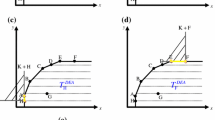Abstract
DEA (Data Envelopment Analysis) attempts to identify sources and estimate amounts of inefficiencies contained in the outputs and inputs generated by managed entities called DMUs (Decision Making Units). Explicit formulation of underlying functional relations with specified parametric forms relating inputs to outputs is not required. An overall (scalar) measure of efficiency is obtained for each DMU from the observed magnitudes of its multiple inputs and outputs without requiring use of a priori weights or relative value assumptions and, in addition, sources and amounts of inefficiency are estimated for each input and each output for every DMU. Earlier theory is extended so that DEA can deal with zero inputs and outputs and zero virtual multipliers (shadow prices). This is accomplished by partitioning DMUs into six classes via primal and dual representation theorems by means of which restrictions to positive observed values for all inputs and outputs are eliminated along with positivity conditions imposed on the variables which are usually accomplished by recourse to nonarchimedian concepts. Three of the six classes are scale inefficient and two of the three scale efficient classes are also technically (zero waste) efficient.
Similar content being viewed by others
References
Balinski, M.L. 1968. “Note on a Constructive Approach to Linear Programming.” In Mathematics of the Decision Sciences, Part 1. G.B. Dantzig and A.F. Veinott, Jr. (Ed.) Lectures in Applied Mathematics, Vol. II, Providence, RI: American Mathematical Society, pp. 38–64.
Banker, R.D. 1984. “Estimating Most Productive Scale Size Using Data Envelopment Analysis.” European Journal of Operational Research, 17, pp. 35–44.
Banker, R.D., A. Charnes, W.W. Cooper, J. Swarts, and D. Thomas. 1989. “An Introduction to Data Envelopment Analysis with Some of Its Models and Their Uses.” Research in Governmental and Nonprofit Accounting, 5, pp. 125–162.
Banker, R.D. and R.M. Thrall. 1991. “Estimation of Returns to Scale Using Data Envelopment Analysis.” European Journal of Operational Research, (to appear in 1991).
Banker, R.D., A. Charnes, and W.W. Cooper. 1984. “Models for Estimating Technical and Scale Efficiencies in Data Envelopment Analysis.” Management Science, 30, pp. 1078–1092.
Banker, R.D., A. Charnes, W.W. Cooper, and A. Maindiratta. 1986. “A Comparison of DEA and Translog Estimates of Production Frontiers Using Simulated Observations from a Known Technology.” In A. Dogramaci and R. Fare, Applications of Modern Production Theory: Efficiency and Productivity, Boston: Kluwer.
Bessent, A., W. Bessent, A. Charnes, W.W. Cooper, and N. Thorogood. 1983. “Evaluation of Educational Proposals by Means of DEA.” Educational Administration Quarterly, 19, pp. 82–87.
Bowlin, W.F., A. Charnes and H.D. Sherman. 1985. “Data Envelopment Analysis and Regression Approaches to Efficiency Evaluation and Estimation.” Annals of Operations Research, pp. 113–138.
Charnes, A. and W.W. Cooper. 1961. Management Models and Industrial Applications of Linear Programming. New York: Wiley & Sons.
Charnes, A. and W.W. Cooper. 1985. “Preface to Topics in Data Envelopment Analysis.” Annals of Operations Research, 2, pp. 59–94.
Charnes, A., W.W. Cooper, B. Golany, L. Seiford, and J. Stutz. 1985. “Foundations of Data Envelopment Analysis for Pareto-Koopmans Efficient Empirical Production Functions.” Journal of Econometrics, 30, pp. 91–107.
Charnes, A., W.W. Cooper, and E. Rhodes. 1978. “Management Science Relations for Evaluation and Management Accountability.” Journal of Enterprise Management, 2, pp. 143–153.
Charnes, A., W.W. Cooper and E. Rhodes, 1978. “Measuring Efficiency of Decision Making Units.” European Journal of Operational Research, 2, pp. 429–444.
Charnes, A., W.W. Cooper, and E. Rhodes. 1979. “Measuring Efficiency of Decision Making Units.” European Journal of Operational Research, 3, p. 339.
Charnes, A., W.W. Cooper, S. Duffuaa, and M. Kress. 1980. “Complexity and Computability of Solutions to Linear Programming Systems.”. International Journal of Computer and Information Sciences, pp. 483–506.
Charnes, A., W.W. Cooper, and A. Schinnar. 1982. “Transforms and Approximations in Cost and Production Function Theory.” Omega, 10, pp. 207–211.
Charnes, A., W.W. Cooper and T. Sueyoshi. (1988). “A Goal Programming/Constrained Regression Review of the Bell System Breakup.” Managment Science, 34, pp. 1–26.
Charnes, A., W.W. Cooper, and T. Sueyoshi. (To appear). “A Goal Programming/Constrained Regression Study of AT&T as a Natural Monopoly.” In (O.A. Davis, ed.), Cost/Benefit Analysis.
Charnes, A., W.W. Cooper, and R.M. Thrall. (1986). “Identifying and Classfying Scale and Technical Efficiencies in Data Envelopment Analysis.” Operations Research Letters, 5, pp. 105–116.
Charnes, A., W.W. Cooper, Q.L. Wei, and Z.M. Huang. 1989. “Cone Ratio Data Envelopment Analysis and Multi-Objective Programming.” International Journal of Systems Sciences, 20, pp. 1099–1118.
Dantzig, G.G. 1963. Linear Programming and Extensions, Princeton: Princeton University Press.
Spivey, W.A. and R.M. Thrall, 1970. Linear Optimization. New York: Holt, Rinehart & Winston.
Author information
Authors and Affiliations
Additional information
The refereeing process of this paper was handled through R. Banker. This paper was prepared as part of the research supported by National Science Foundation grant SES-8722504 and by the IC2 Institute of The University of Texas and was initially submitted in May 1985.
Rights and permissions
About this article
Cite this article
Charnes, A., Cooper, W.W. & Thrall, R.M. A structure for classifying and characterizing efficiency and inefficiency in Data Envelopment Analysis. J Prod Anal 2, 197–237 (1991). https://doi.org/10.1007/BF00159732
Issue Date:
DOI: https://doi.org/10.1007/BF00159732



